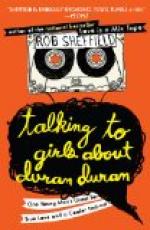“It has rained every day, and I can tell you we’ve been very fed up at times. It’s hard to see the funny side of things when soaked through, caked in mud, and tired, but we feel different already after a couple of nights in our blankets and a few square meals.
“I am keeping
very fit, although the last spell knocked me
up a bit; but a little
rest will do wonders, and I shall be
full of fighting strength
again and ready for the Hun.”
One Young Man Answers Questions
CHAPTER X
ONE YOUNG MAN ANSWERS QUESTIONS
Sydney Baxter’s American correspondent has sent me a letter which gives such an admirable picture of the day-to-day life of a Tommy at the front that it merits a separate chapter.
“I am glad that
you like the idea of Questions and Answers.
I should never have
thought of explaining some of the things
you mention had you
not asked. Here goes:
“Question No.
1.—How do you find time to write so
much?
I’ve often wondered,
as I should think you’d want to sleep
when out of the trenches.
“A.—Well, for one thing, I am very fond of writing letters. To me it’s not a bore as it is to some. To me it’s a medium by which one can have a nice chat with one’s chums (both sexes), and looking at it in that way you can understand. I write to you because I thoroughly enjoy the little talks between us. So much for the inclination, which has much to do with the time, as—where there’s a will there’s a way. When in the trenches the sentry duty usually runs two hours on, four hours off—all the way through. In addition, we get five hours’ work a day. Now the total hours of duty are thirteen out of twenty-four: and as I only need six hours’ sleep, that leaves five hours for cooking, eating, reading, or writing. I used to have a programme somewhat like this: rest hours at night—sleep; rest hours before 12 o’clock—sleep; and in the afternoon read or write. Starting from 6 o’clock one evening it works out: 6 to 8 guard, 8 to 10 work, 10 to 12 sleep, 12 to 2 guard, 2 to 6 sleep, 6 to 8 guard, 8 to 10 breakfast and odd jobs, 10 to 2 work, 2 to 6 read and write, and afterwards tea. This will give you a little idea. I have only two meals a day whilst in trenches, and cocoa once in the night.
“By the way, when out on ‘rest’ we sleep up to midday the first day, and as we go to bed at nine o’clock on the following evenings we get plenty of sleep. The chief advantage of ‘rest’ is the change of food and more exercise, which the officers see we get. Whilst on ‘rest,’ it’s drill, etc., in the morning, sport in the afternoon, letters or reading in the evening.
“Q. No.
2.—Is a dug-out a hidden structure covered
with
sand-bags where you
only sleep, and are there such luxuries
as beds?




